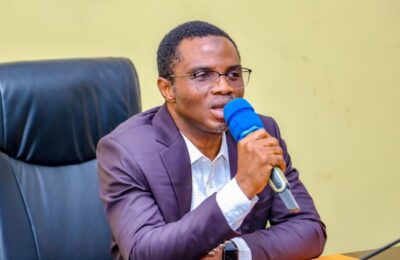In a world drenched in rhetoric about justice, human rights, and dignity, there exists a deafening silence around the caged cries of prisoners across continents. Their voices do not trend. Their tears do not move nations. Their names are not engraved on the scrolls of international empathy. They are confined not merely by concrete, but by the cruelty of forgetfulness. Yet, it is in those very prisons—amid rusting bars and fetid corridors—that humanity is most deeply tested, and often, most tragically fails.
The imprisoned are not merely inmates; they are souls in suspense—caught between the severity of state judgment and the indifference of a free world. While the laws of men confine bodies, the negligence of society imprisons destinies. From Kirikiri to Rikers Island, from Robben Island to Beijing’s clandestine holding centers, there lies a universal sorrow: the slow death of human memory. And yet, if heaven still counts tears, then the tears of the forgotten behind bars must weigh heavily in divine arithmetic.
Christ did not stutter when He said, “I was in prison, and ye visited me” (Matthew 25:36). This solemn phrase is neither poetic license nor doctrinal decoration—it is an eternal standard. When we pass by prisons as though the men and women within are lepers of justice, we deny Christ a visit. When we sing “Amazing Grace” in auditoriums and neglect grace where it is most needed, our religion becomes nothing more than sanctified noise. Bishop David Abioye once said, “Your spirituality is not measured by your noise on the altar, but by the weight of your compassion off it.”
The writer to the Hebrews raises a sacred injunction that can no longer be ignored in a world of hardened hearts and institutional apathy: “Remember those in prison as if you were their fellow prisoners, and those who are mistreated as if you yourselves were suffering” (Hebrews 13:3). This verse does not suggest pity from a distance—it demands identification. It is a summons to spiritual proximity. We are not called merely to observe but to feel, to carry the weight of unseen chains with invisible intercession.
Let us, therefore, continue to intercede in prayers for those unjustly imprisoned across the world. Pray that their faith will not fracture beneath iron gates. That the light of hope will remain ignited even in their solitary nights. And above all, that they will have divine opportunities to testify of Christ, for as Paul declares, “the word of God is not chained” (2 Timothy 2:9). To every soul locked behind steel and silence, the Gospel remains unhindered. It passes through bars and barbed wires. It penetrates walls where even human justice cannot reach.
Do you feel led to stand in the gap? To support prisoners not merely with words but with witness? There are inmates in Idah Correctional Service Centre whose voices go unheard, whose cases rot in dusty files, and whose faith flickers like candles in stormy night. May God open doors for you to partner in this sacred mission. And may open heavens locate our ministry as we seek legal redress, pastoral visitation, and tangible support for the families of the unjustly incarcerated. If your heart burns to give toward this divine project, please send a message to my WhatsApp. A seed sown into forgotten lives is a seed planted in eternal soil.
The magnitude of this abandonment is as spiritual as it is institutional. In many African nations, prison facilities are relics of colonial architecture, designed to degrade rather than rehabilitate. In Nigeria, over 70% of inmates are awaiting trial—some for over a decade—living in limbo without judgment or mercy. In Iran and China, ideological dissent is a crime punished with subterranean silence. In parts of Latin America, prison systems have become breeding grounds for despair, gang culture, and self-erasure. The question that must confront every conscience is simple yet seismic: Where is the mercy of the modern world?
Prophet TB Joshua, whose ministry became a sanctuary for the broken and forgotten, once declared, “There is no wasted life unless we waste the opportunity to love that life.” He didn’t romanticize crime. He humanized the criminal. And in so doing, he invited the Church and society at large to reconsider the imprisoned not as statistics, but as sacred possibilities.
There is a dangerous assumption that freedom alone validates worth. But what if the freest souls are not in parliament but in prison? What if the most repentant hearts do not walk on red carpets but sleep on cold cement? The Holy Spirit is not allergic to concrete walls. If Paul could pen scripture from chains, then there are still scriptures waiting to be written by imprisoned hearts. If John the Baptist could herald the Lamb of God from a dungeon, then there are prophets in prison still heralding truth.
Juanita Bynum once wept and thundered, “We’ve mastered performance, but lost presence. We know how to gather people, but we’ve forgotten how to gather the wounded.” The prisoner is among the wounded. Forgotten by politicians. Ignored by revivalists. Abandoned by families. But remembered by God. Remembered by heaven. Remembered by those whose faith is not confined to air-conditioned churches, but who understand that true grace must descend into grime.
There’s an Igala proverb that warns, “The fire you ignore today may burn your compound tomorrow.” When nations turn their backs on the rehabilitation and restoration of prisoners, they fertilize cycles of bitterness and rebellion. A soul denied dignity becomes a society’s delayed judgment. Prisons are not garbage dumps for human mistakes; they are testing grounds for collective conscience.
But alas, justice has become mechanical. Sentencing is now more arithmetic than mercy. Reformation has been replaced by retribution. Rehabilitation has become an empty word shelved beside forgotten policy papers. And yet, the soul of civilization is found not in how it treats its successful, but in how it treats its most broken. Archbishop Desmond Tutu once declared, “A society that doesn’t forgive is a society that destroys itself.”
Let us imagine a global shift. Let us dare to reawaken compassion. What if churches organized revival crusades inside prisons—not merely to preach condemnation, but to prophesy redemption? What if governments instituted mercy reviews—not to glorify impunity, but to humanize justice? What if the international community declared a global year of remembrance for prisoners—amplifying stories, reviewing unjust detentions, and reforming archaic laws?
Imagine again: a man in a Pakistani cell reading a Holy Bible in secret. A young woman in a Brazilian prison discovering the Psalms and penning hymns of hope. A falsely accused inmate in North Korea whispering to God in the dark. These are not scenes for Netflix. These are spiritual realities. And they matter to God.
To forget the prisoner is to risk cosmic amnesia. It is to erase the cross from our theology and strip grace from our gospel. The man crucified between two thieves did not ignore them. One mocked. The other believed. And Jesus, in His dying breath, offered paradise. “Today, thou shalt be with me in paradise.” That was not poetic pity. That was the final evangelism of the crucified Christ—a Saviour dying for criminals while saving one beside Him.
To the free, I say: freedom is responsibility, not immunity. Your liberty is not a badge to boast, but a mantle to serve. Visit the prisoners. Write to them. Advocate for justice. Preach to them. Listen to them. Teach them. Let your theology walk through prison gates. Let your prayers rise for those who can no longer rise. Let your pulpits echo with mercy louder than malice.
To the imprisoned, I speak with trembling hope: You are not forgotten. Your chains are not eternal. Your life is not a footnote. Heaven hears your groanings. Christ understands your shame. Your soul is not on trial. Your future is not dead. From your brokenness, God can still write a masterpiece. The cross was built for the condemned, not the commendable.
And to governments, I speak as a man who watches nations with spiritual eyes: justice without mercy is tyranny. Law without love is brutality. The dignity of your country is reflected in the condition of your prisons. Fix them. Reform them. Humanize them. And never forget that every law written without love will one day be judged by a higher court—the throne of the Ancient of Days.
In conclusion, the world must remember this: The next Mandela may still be in chains. The next Martin Luther King may still be writing from a jail. The next John Bunyan may still be dreaming in solitary. The next Paul may still be singing in darkness. Redemption is not a myth—it is a river. And even in prison, the water still flows.
Let mercy return to our systems. Let memory return to our hearts. Let the Church remember the caged. Let nations revisit their forgotten. For the measure of our civilization is not in how loud we preach, but in how deeply we remember the least of these.
You are not forgotten.
You are remembered.
And your life still matters before the throne of God.
– Inah Boniface Ocholi writes from Ayah – Igalamela/Odolu LGA, Kogi state.
08152094428 (SMS Only)




